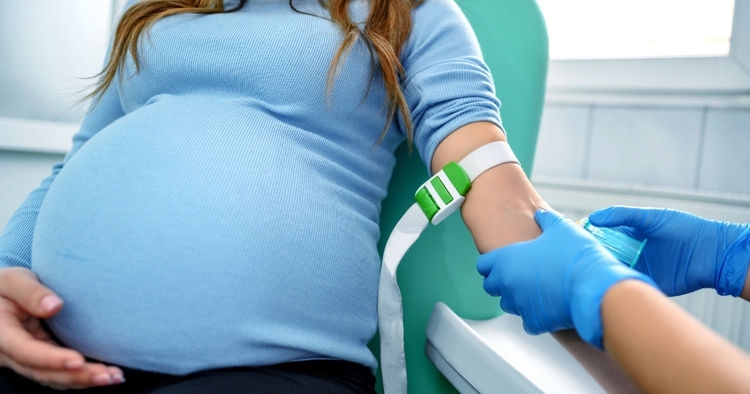Did you know a pregnant person's blood contains traces of their baby's DNA? A blood sample from the parent-to-be can be used to screen for abnormalities in the feotus' DNA – This is called Non-Invasive Prenatal Testing (NIPT).
NIPT is a screening test, not a diagnostic tool. The results can indicate an increased risk that your baby will have an abnormality, but you always need to confirm through further diagnostic testing.
A standard NIPT will test for:
- Down syndrome (trisomy 21)
- Edwards syndrome (trisomy 18)
- Patau syndrome (trisomy 13)
- Turner syndrome
Your provider may offer additional testing options such as testing for foetal sex or an abnormal number of X or Y chromosomes.
How does NIPT work?
A pregnant person's blood contains their baby's DNA. A sample of maternal plasma (in mum's blood) can indicate the abundance of DNA from each chromosome in the feotus, which a doctor can analyse for abnormalities.
If you do have an NIPT, it will usually be as simple as having some blood taken. An NIPT may be offered to you around the same time as your 12-week ultrasound. Your ultrasound results, blood results and age can be bundled together in a "combined screening" that can indicate abnormalities.
An NIPT can be administered in the first trimester from 10 weeks onwards. Women of any age and any risk factor group can receive this non-invasive test.
Will I need an NIPT?
You may wish to have, or your doctor may recommend, an NIPT if:
- You did not receive a combined screening test.
- You are considering an invasive test with a higher risk factor such as amniocentesis, but you want to be sure you are at increased risk first.
- You have previously had a baby with a chromosomal condition or foetal abnormality.
- You are of advanced maternal age.
- You have a family history of chromosomal abnormality.
- Your initial combined screen indicates you're at high risk.
A genetic counsellor can help you decide if you need an NIPT, or help you understand the results of one. A genetic counsellor has qualifications in genetics and counselling and can help parents-to-be navigate the world of chromosomal abnormalities. Of course, you can always discuss this with your obstetrician or GP in the first instance.
Recommended Articles:
https://www.babybunting.com.au/baby-talk-blog/what-is-amnocentesis/
https://www.babybunting.com.au/baby-talk-blog/what-to-expect-at-your-antenatal-appointments/



